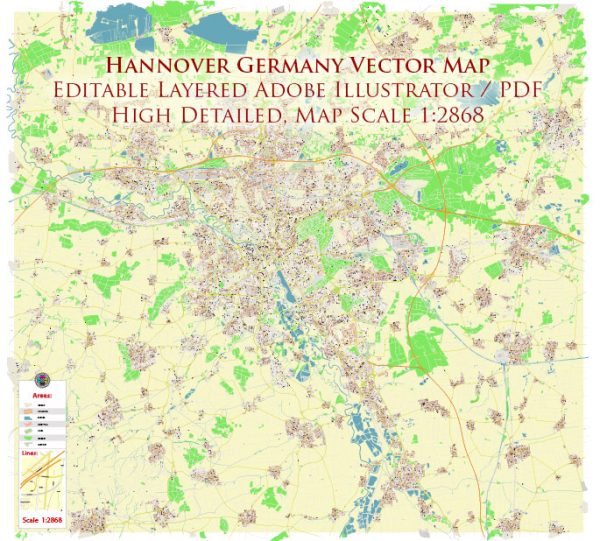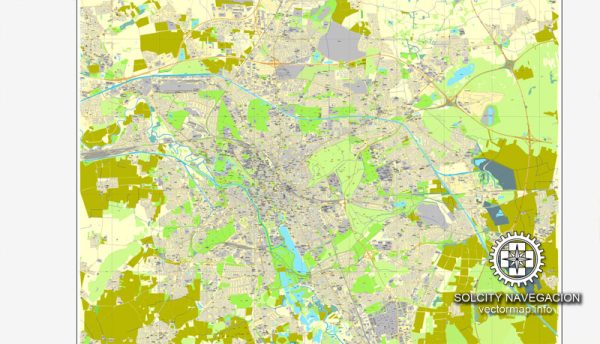Hanover, known as Hannover in German, is the capital city of the state of Lower Saxony in Germany. Its history is rich and diverse, encompassing various eras and events. Here’s a brief overview of Hanover’s history:
- Medieval Origins: Hanover’s history dates back to the medieval period when it was a small village on the banks of the River Leine. It was founded in the 12th century and gradually grew in importance.
- House of Hanover: The city is most famous for its connection to the House of Hanover, a German royal dynasty that ruled over the United Kingdom from 1714 to 1901. This connection began when Elector George Louis of Hanover became King George I of Great Britain and Ireland.
- Kingdom of Hanover: From 1814 to 1866, Hanover was an independent kingdom. During this time, it experienced significant cultural and economic growth. The city’s historic town hall, known as the Neues Rathaus, was built during this period and is a famous landmark.
- Prussian Annexation: In 1866, Hanover was annexed by Prussia following the Austro-Prussian War. This marked the end of the Kingdom of Hanover and the incorporation of the region into the emerging German Empire.
- World War II: Hanover, like many German cities, suffered extensive damage during World War II due to Allied bombing raids. After the war, extensive reconstruction efforts took place, and the city was rebuilt.
- Post-War Era: After World War II, Hanover became the capital of the newly formed state of Lower Saxony. It played a pivotal role in the reconstruction and economic recovery of the region.
- Modern Hanover: Today, Hanover is a vibrant city known for its trade fairs, cultural events, and educational institutions. It’s home to numerous museums, galleries, and historic sites. The city also boasts a beautiful garden called the Herrenhausen Gardens, which includes the Great Garden, the Berggarten, and the Herrenhausen Palace.
- Cultural Events: Hanover hosts various cultural events and festivals throughout the year, including the Maschsee Lake Festival, International Fireworks Competition, and the Christmas Market, which draw visitors from all over Germany and beyond.
- Economy: Hanover is an economic hub in Germany, with a diverse economy that includes industries such as automotive manufacturing, information technology, and financial services. The city is also known for its strong emphasis on sustainability and environmental conservation.
- Governance: Hanover is the administrative and political center of Lower Saxony. It has a vibrant cultural scene, with numerous theaters, concert halls, and museums, and it plays a significant role in the political and economic life of the region.
Hanover’s history is characterized by its transformation from a medieval village into a prominent city with a rich cultural and historical heritage. Today, it is a thriving urban center in Germany with a strong emphasis on sustainability and innovation.



 Author: Kirill Shrayber, Ph.D. FRGS
Author: Kirill Shrayber, Ph.D. FRGS